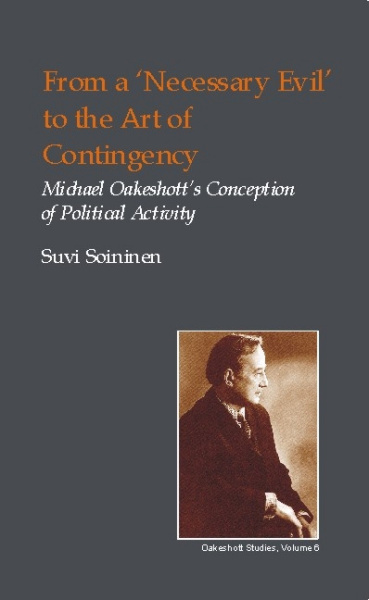This book presents a comprehensive study of Oakeshott's conception of political activity. The author first examines Oakeshott in the contexts of liberal, conservative and Idealist thought, and then presents a detailed interpretation of the change in his conception of politics in the context of British postwar political thought. It is argued that Oakeshott’s conception of political activity shifted from a near contempt of politics towards the applauding of politics as a deliberative and reflective activity. The development is disclosed by examining the change in his key concepts, such as authority and tradition. Accordingly, some rather unexpected aspects of Oakeshott’s thought, such as his close relationship to the linguistic turn, appear. The author argues that although Oakeshott cannot exactly be classified as belonging to that group of political philosophers for whom politics represents a superior human activity, his later work presents an important and original view of politics as an art of contingency.


